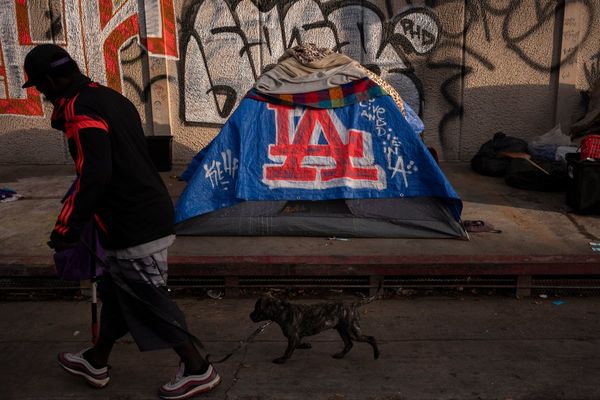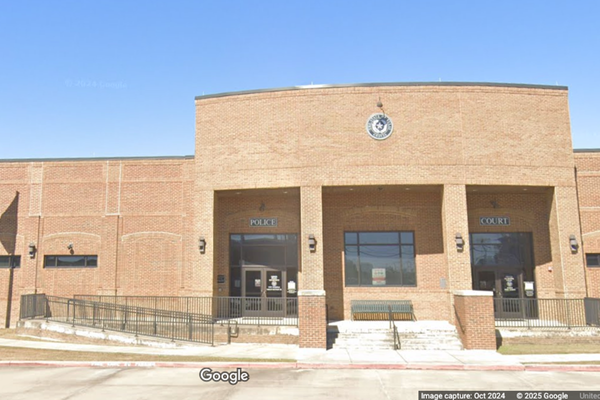Affectionately known as the "biggest farm in France", the Paris International Agricultural Show, a nine-day fair spread over a vast exhibition lot on the French capital's southwestern edge, is the nation's showcase for the best the countryside has to offer, from livestock to terroir delicacies, primed for prestigious competition. But in an election year, the event's straw-strewn aisles are also home to another preening breed: that political beast known as the French presidential candidate.
Last year's edition of the Salon de l'Agriculture, cancelled over Covid-19, was the first-ever break with a hallowed tradition. The 58th running of the fair began on Saturday and runs through March 6, little more than a month before the first round of France's presidential election on April 10. Even as war raged in Ukraine, President Emmanuel Macron said he would attend the fair's opening day, poised as he is to announce his bid for re-election any day now. And few, if any, of Macron's challengers for the Élysée Palace can afford to skip the affair, either. They know where their bread is buttered, quite literally.
"It's a compulsory figure in a presidential election. Every candidate must go, to show their attachment to traditions, to the terroir (land), to France's farming community," political historian Christian Delporte told FRANCE 24.
"The big advantage of the Salon de l'Agriculture is that you have all of France in one place. All of rural France, all of farming France, sure, but all of France anyway," added Delporte, a professor of contemporary history at the University of Versailles. "And so, going from stand to stand, in a way one is visiting each region and one is linked to that terroir, so the symbolism is strong."

Since the Salon's first edition in 1964 – when farmers across the country first settled their breeding animals onto trains headed for the big show in the capital and 300,000 visitors turned out to greet them – the Salon de l'Agriculture has drawn eager crowds in Paris. Families turn out for the petting zoo. And few are impervious to the lure of the fair's glorious larder, with products from every French region competing for prizes in the 152-year-old Concours Général Agricole: contest-worthy wines and beers, honeys, jams and chocolates, butters and cheeses, charcuterie, foie gras and oysters, to sample and to bring home. Even as France's rural and farming populations dwindled – some 80 percent of the country's residents today live in urban settings – the allure of the nation's favourite makeshift farm grew, with as many as 700,000 attending in 2014.
After all, Delporte points out, city-dwellers have ties to the countryside, too. "They have regional ties, rural ties. Even many Parisians. There aren't many pure Parisians ... Except maybe me, and even I live in the countryside now," the historian laughed. "The idea that one has roots somewhere in France is very important. That's not unique to France, but it's very important."
Although Salon organisers adapt the show to the times – this edition spotlights "AgriTech start-ups" and "bio-sourced materials" – there is a trusty rhythm and a lore to the proceedings. Every edition, by tradition, chooses a "star cow" to feature on billboards, and bus and metro adverts. This year, the celebrity bovine is one "Neige" (Snow), a 4-year-old Abondance specimen born on an Alpine ski piste "just under a chairlift" at the Grand-Bornand, where herds graze in summer.
The Salon, to be sure, isn't a holiday for the thousands of animals on site; some 360 cows produce 40,000 litres of milk over the nine-day event. But the Salon de l'Agriculture's true beasts of burden, it seems, are the politicians. Reporters hit the stopwatch as presidents and presidential candidates arrive, roaming the fair's eight pavilions for hours on end, gladhanding farmers and bystanders, petting livestock and sampling nibbles and tipples galore.
Chirac and charcuterie
In the marathon that is the Salon de l'Agriculture for a French politician, former conservative president Jacques Chirac was the undisputed pacesetter. A Paris-born bon vivant and one-time agriculture minister with long-standing links to the rural Corrèze, Chirac's gift for the gab with farmers and his bottomless appetite for the finer things at the Salon were legendary. In 30 years, Chirac famously missed the fair only once, in 1979, when he was hospitalised after a car crash.

"The Guinness Book of Records of the Salon de l'Agriculture was created by Jacques Chirac," Delporte mused. "All of the presidents and all of the candidates are imitating Chirac, in a way."
Chirac's successor in the Élysée Palace notoriously couldn't bottle the legend's magic. Nicolas Sarkozy caught flak at the 2008 edition of the fair, his first as president, when he was caught on camera telling a bystander who had refused to shake his hand to "get lost then, you poor schmuck".
Running for president in 2012, Socialist Party candidate François Hollande spent 12 hours at the Salon on a single day, only to return for 10 straight hours the following year as president. As a presidential candidate in 2017, Macron was struck on the head with a raw egg levied by some disgruntled fair-goer. Undeterred, the centrist returned the following year as president and stayed 12 consecutive hours, before beating Hollande's record in 2019 with a 14-hour performance. During his last stint at the fair, for 12 hours in 2020, Macron weathered a storm of criticism, at turns from Yellow Vest protesters and the farmers unhappy with his plan (later rolled back) to ban the pesticide glyphosate.
Indeed, for any president or presidential candidate, a tour of the Salon de l'Agriculture is a dicey endeavour. Although the itinerary is scrupulously planned, with cherry-picked interlocutors, there are too many variables at play to control everything.

As an adviser for Hollande, Gaspard Gantzer prepared the president's Salon visits meticulously. Gantzer explained recently on his FranceInfo radio podcast how fraught the event could be, regardless. "It's an extremely delicate exercise because it's very long, sometimes around 10 hours on site, and anything can happen at any moment because there are angry people, obviously, among the professionals, but there are also all those unknown visitors that one can't check out beforehand and who can call out to the president at any time," he said.
"Hostility was on display a lot at those Salons. We saw some very difficult ones where there were boos, even spitting," Gantzer continued. "Every time, Hollande succeeded in bringing things back to a dialogue, but the images from a media standpoint were very bad because they often retained only the worst of those visits."
Of course, even when the exercise is a pleasant one, it can be perilous. A positively glowing prime minister Manuel Valls, looking the worse for wear in 2015 after striding over a barrier at the Salon for an improvised hello on live television, all but admitted on air that his wine-laden tasting tour of the gastronomy hall was to blame.
"That's what the Salon de l'Agriculture is about, too. Showing one's attachment to habits, to customs, to living the good life in the French style," Delporte explained. "So one must eat, drink and savour."
There are some exceptions to the must-attend rule. In 2017, far-left candidate Jean-Luc Mélenchon was the only major presidential hopeful to skip his star turn at the Salon, instead airing his contempt for what he called "the production model of agriculture" while empathising with the "permanently difficult lives" of farmers. "An agriculture respectful of human beings and the environment cannot be capitalist because capitalism is not compatible with the long view of small-holder and ecological farming," he insisted.
President François Mitterrand, a Socialist with well-known rural ties, officially attended only once, on the campaign trail before winning his first of two consecutive terms in 1981. Reportedly leery of right-leaning agricultural unions, Mitterrand is said to have told advisers urging him to attend, "Let's leave that to Chirac".
A poor showing at the Salon isn't necessarily a harbinger of doom, either. Campaigning for the presidency in 2002, far-right leader Jean-Marie Le Pen was roundly booed at the Salon, the windscreen of his car hit with a plastic bottle as he was driven away. But the grizzled populist's shock appearance in the presidential run-off against Chirac was just weeks away, and Le Pen would achieve that feat with disproportionate support from farmers.
What about the 2022 presidential race?
In the run up to this edition of the Salon de l'Agriculture, much has been made of well-liked current agriculture minister Julien Denormandie, a longtime Macron ally and agronomy engineer by trade, being tipped as the favourite to direct the incumbent's re-election campaign whenever Macron finally throws his hat in the ring. That prospect alone suggests high ambitions, at least, for Macron's performance at the Salon.
Conservative candidate Valérie Pécresse has long boasted that her first mentor in politics was Jacques Chirac. And she has sought to play up her association (by marriage) to Chirac's beloved rural Corrèze. But without his popular touch, Pécresse's cityslicker image – she presides over the greater Paris area and lives in Versailles – has proven hard to shake so far.
On the left, Mélenchon on Thursday said he would skip the Salon once again. His campaign announced he would advocate instead for "small-holder agriculture, the end of pesticides and respecting the planet's limits" in the French overseas territory of La Réunion in the Indian Ocean.
Beyond farming, Greens candidate Yannick Jadot, has drawn the ire of rural voters for his proposal (echoed by Mélenchon) to ban hunting at weekends and school holidays. The stance earned new urgency, and headlines, last weekend after a 25-year-old hiker was killed on a marked trail, struck by a wild-boar hunter's stray bullet. France has the largest number of hunters in Europe – some 1 million hold permits for the practice – and hunting is strongly tied to rural identity in the public imagination. Pledging restrictions on hunting, then, is fraught at the ballot box in rural communities – not to mention the country's premier rural showcase. Jadot, who also serves as an MEP, said he would forego his appearance at the Salon scheduled for Tuesday, owing to a meeting of the European Parliament on the war in Ukraine.

What about the duelling populists on the far right? Anti-Europe sentiment tends to play well among farmers (a paradox, some note, given the generous support French agriculture receives from the European Union). But in the dogfight at France's right-wing extreme, Marine Le Pen may have the advantage over Éric Zemmour, not least due to her long experience at the agricultural fair. She campaigned there alongside her party-founder father as early as 2004 while standing for regional office. Now on her third bid for the French presidency, after watching her father wage five of his own, she knows how to talk to farmers. "There is no hostility in the farming world with regard to Marine Le Pen," Delporte noted.
Zemmour, meanwhile, is a newcomer to presidential politics, a pundit-turned-politician with a lot more to prove in that area. "Zemmour is purely urban. I mean, he grew up in Seine-Saint-Denis (the suburbs north of Paris) and has lived in Paris his whole life. So he will probably have a little more trouble than the others showing he knows the farming world," Delporte surmised. "Slipping on rubber boots at a farm is not what shows you are close to farmers. And you have to show the people you talk to that you know something about their métiers."
It's a word to the wise that any candidate at the Salon might well take to heart. Another tip? Consider skipping breakfast.







